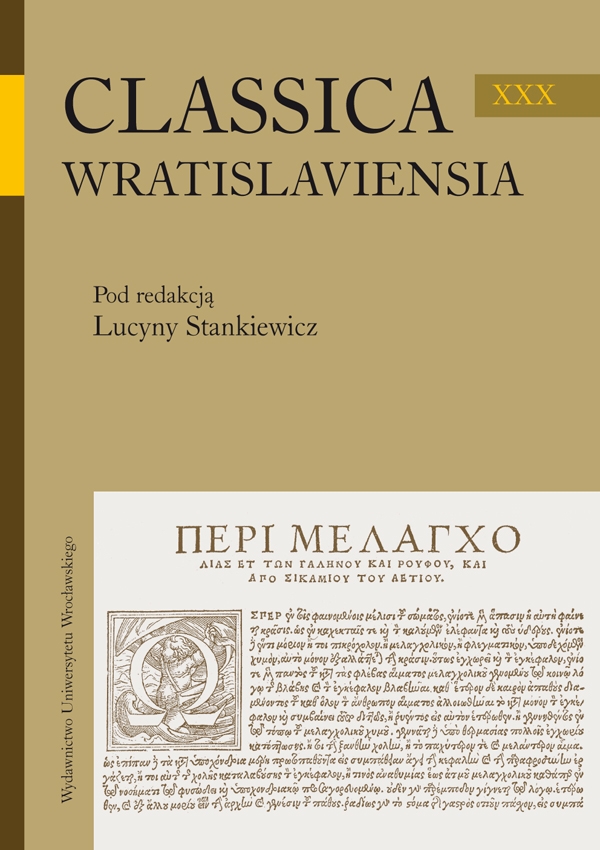Motyw powrotu duszy do Eteru w greckich epigramach nagrobnych
Abstrakt
The motif of the return of the soul to the aither in Greek funerary epigram
The paper examines one of the key eschatological themes found in Greek funerary verse inscriptions of Hellenistic and Roman eras. In the inscriptions the concept of aither reaches far beyond philosophical originally pre-Socratic, cosmological meaning and acquires distinct mythological attributes. As one of the standard terms for the heavenly abode of the dead it did not imply an anonymous absorption of the individual into the fiery element, but the promise of personal continued existence in the afterlife. The term aither as such was adequate due to a number of reasons. Firstly, its close association with the idea of astral immortality this image’s appeal was that of the dead finding their specific, visible place among the stars; the dead entered into the brotherly company of gods and heroes. Secondly, the brightness of the aither compensated the loss of the sunlight for the dead many of the epigram bewail. Finally, occasional hints to the entry of the dead into the aither as tantamount to the avoidance of the death itself parallel to the divine abduction motive appear in the epigrams. As a result, the idea of aither was popular both among the narrow, philosophically versed elite and members of Pythagorean/Orphic et similia sects, and among the wider public as well.

